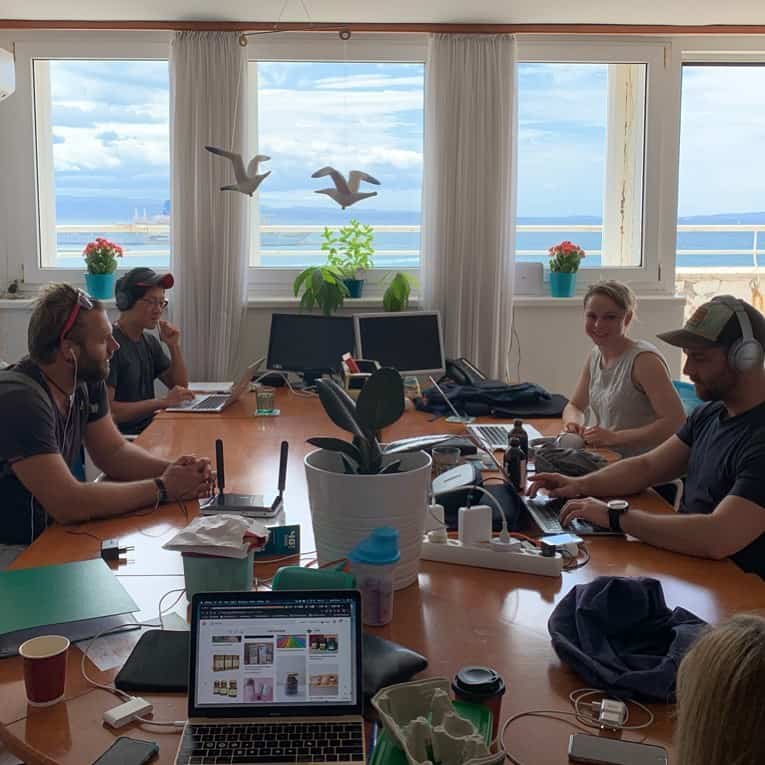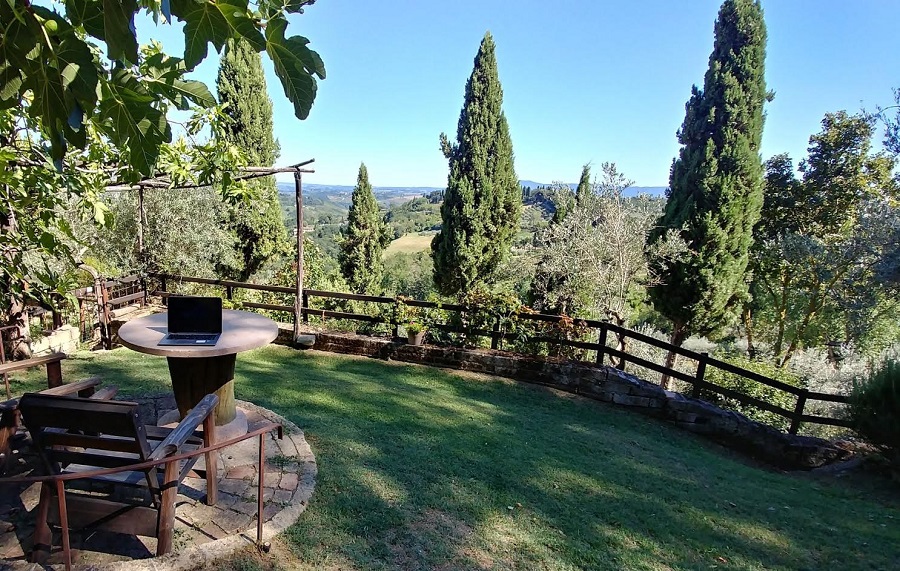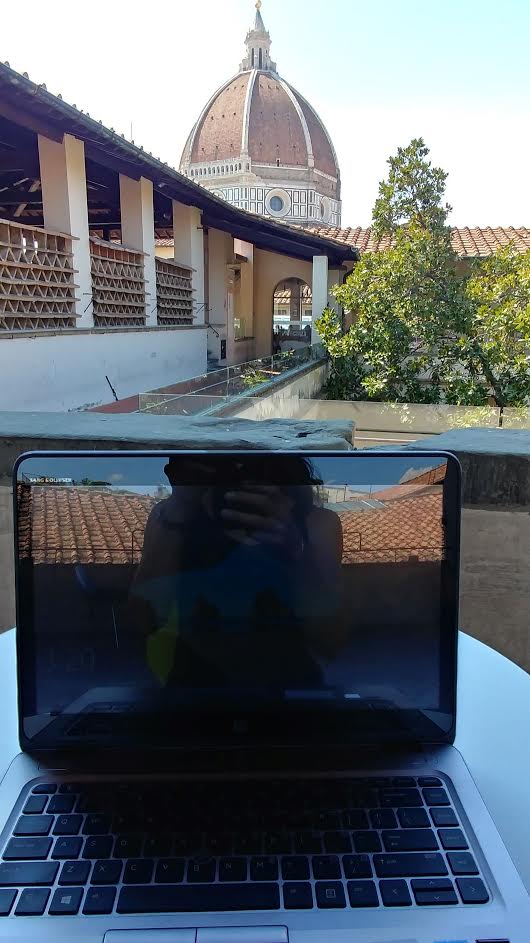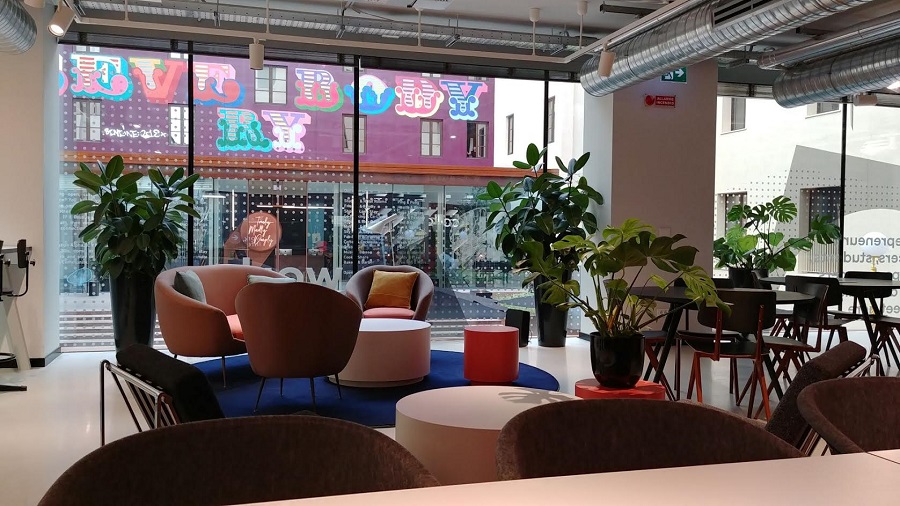June 21, 2019 - As the number of digital nomads rises globally, some are choosing to spend some of their time in Croatia. A new TCN series meeting international digital nomads calling Croatia their temporary home. We start with Chris Mendenhall from Colorado.
As recently featured on TCN, the world is projected to have a billion digital nomads by 2035, people from all over the world doing all manner of jobs and business with one thing in common - a flexible, mobile workplace connected to the Internet. If even a fracture of that number becomes a reality, the economic opportunity for countries which can attract these wealth-generating individuals has the potential to dwarf Croatia's current tourism revenues. And there are few countries better placed than Croatia to take advantage. Safe, beautiful, great gourmet scene, top tourist destination, English widely spoken, well connected to other destinations, and a superb lifestyle.
In order to look at the issue in more detail, we have decided to look at some of the digital nomads who have Croatia in their lifestyle plan, and to find out why Croatia, what Croatia offers, and what are the things that countries should be looking out for to take advantage of this economic opportunity. I am very grateful to Tanja Polegubic from Split's waterfront co-working space, Saltwater in Split (see location below) for her help in connecting me to various digital nomads using her space.
I am also very grateful to Chris Mendenhall from Colorada for being the first in the series. A really nice story of have laptop, will travel out of the box.

You are one of a growing number of digital nomads. Tell us briefly who you are and what you do.
I have what I call a “freelance office services business” based in Colorado. That means I do all kinds of administrative (secretarial, bookkeeping, etc.) work for small businesses that need help but don’t necessarily need to hire a full-time person. The piecemeal work from all 10 of my clients fills my time nicely. When I realized that I do most of my work on my own laptop and that I could do it from anywhere, I decided to spend a year doing it from Europe!
I’m not the typical digital nomad who never plans to call one port home. I am a 55-year-old woman with a home I plan to return to at the end of my year abroad. Before this trip, I was a creature of habit and routine who enjoyed roots and familiarity. This trip has taught me a great deal about flexibility, freedom, and the possibilities that await outside the confines of a “normal” life.

Working from your laptop rather than in an office seems like the dream lifestyle. What are the main pros and cons?
It has been fantastic! When I worked from home, I mostly felt tied to my home office, but being in different locations has made me get out among people and work in coffee shops, coworking spaces, libraries, parks, etc. Cons: I don’t always have everything I need at my disposal (like notes I forgot to bring or a printer, although I rarely need a printer); some locations like coffee shops can be distracting and you feel like you need to keep buying coffee; working from coworking spaces can be expensive compared to your own house; not having the perfect desk set up, especially if ergonomics is important to you.
Pros: variety; flexibility; opportunities to meet many different people; inspiration; letting my environment keep my work fun and interesting.

Laptop living gives you the freedom to travel and choose your place to live. Where are the global hot spots currently for digital nomads?
I can’t speak to the global hot spots for other people, but I’ll say that every city I’ve visited has had its own charm and benefits, and it that is the very element that adds to the nomadic appeal. The factors that determine the ease of working remotely include good public transportation, good wifi, and a centrally-located apartment. If it is too hard or time-consuming to get to good places to work, you lose a lot of time just moving around. When that has happened for me, I ended up working alone in my apartment, which I could have done from home.

You chose Croatia and specifically Split - why?
I chose Croatia because I needed a non-Schengen country to pass the time before I could go back to the Schengen countries that I thought I came to Europe for. A number of friends had recommended Croatia because of recent trips there. Word is quickly getting out about what a fabulous tourist destination it is and folks are interested to see it before the crush of tourism in more well-known European countries seeps toward the Adriatic Sea. Most people recommended Dubrovnik, but I chose Split because it was slightly more centrally located in case I wanted to visit farther north and because it was bigger than Dubrovnik, I thought it might offer more amenities than just what a pretty Old Town might.
Split was a perfect choice because unlike many coastal Croatian towns that I visited over the winter, Split retains its lively community year around. Public transportation within the city and to other nearby destinations is great, and the cafes, shops, restaurants and bars remained open and offered plenty of shopping, entertainment, and culinary options. Of course, the natural beauty of the coast was delightful and especially appreciated in the winter. Through word of mouth, I knew of two coworking spaces before I even got there (Saltwater and Amosfera), and they not only provided places to work, but a thriving network of professionals and fun individuals. I attended several events and activities connected with those two spaces and met some wonderful people.
Coworking individuals and digital nomads tend to be fairly young and while I really enjoyed that vibrancy, I also appreciated that Split has a number of older people who have moved there to retire. That meant that between those with flexible work schedules and those done with working entirely, it was easy to find someone at any moment to call for a coffee or a walk or an excursion! My life in Split was rich, well-connected, entertaining, and beautiful!

What are the most important things a destination should offer to be most compatible for the digital nomad lifestyle, apart from that all-important good WiFi?
Again, public transportation is really helpful. If a city has a bikeshare program (like the amazing Mobike system in Florence, Italy), that makes getting around much easier. Coworking spaces that host networking opportunities or provide an atmosphere of shared interests (rather than just office space) make a huge difference, especially if they offer short-term memberships. Plenty of cafes are key and if they offer wifi and outlets, all the better. Gyms or yoga studios are a plus. Parks, green spaces, and the coastline provide sanity for me.
What are the competitive advantages that Croatia has to attract more digital nomads?
Croatia, and Split specifically, offers a beautiful, unique environment even during the winter months. People are friendly and prices are reasonable. Most people working remotely are not raking in an exorbitant income, so working in expensive cities can be a burden. I loved the green market and the fish market in Split, and there are super cheap movies in the theater in the center of town. Festivals and events keep things entertaining, but can make lodging and dining challenging. I loved that there were so many beautiful places to visit just an easy bus ride away from Split. Split also has an active expat Facebook community that made meeting friends easy, both expats and locals. Meetup.com also provides great opportunities for meeting other people.
I have been so inspired by the creative and collaborative communities found in coworking spaces throughout Europe that I’m considering running one of my own when I return to Colorado.
You can follow Chris' digital nomad journey through Europe on her blog, From One Little Idea.
To learn more about Croatia for the digital nomad, check out the Total Croatia Digital Nomad guide.
Are you a digital nomad in Croatia who would like to be featured in this series? Please contact us on This email address is being protected from spambots. You need JavaScript enabled to view it.


